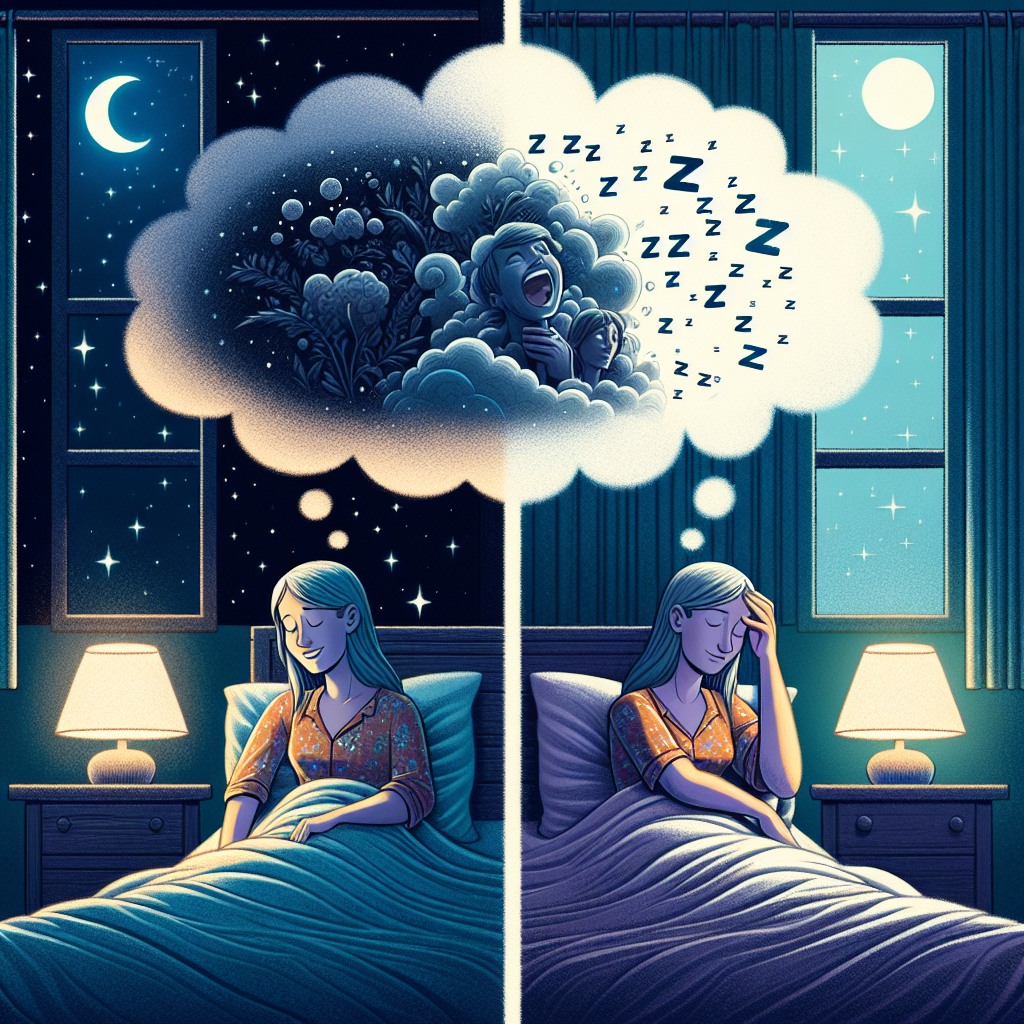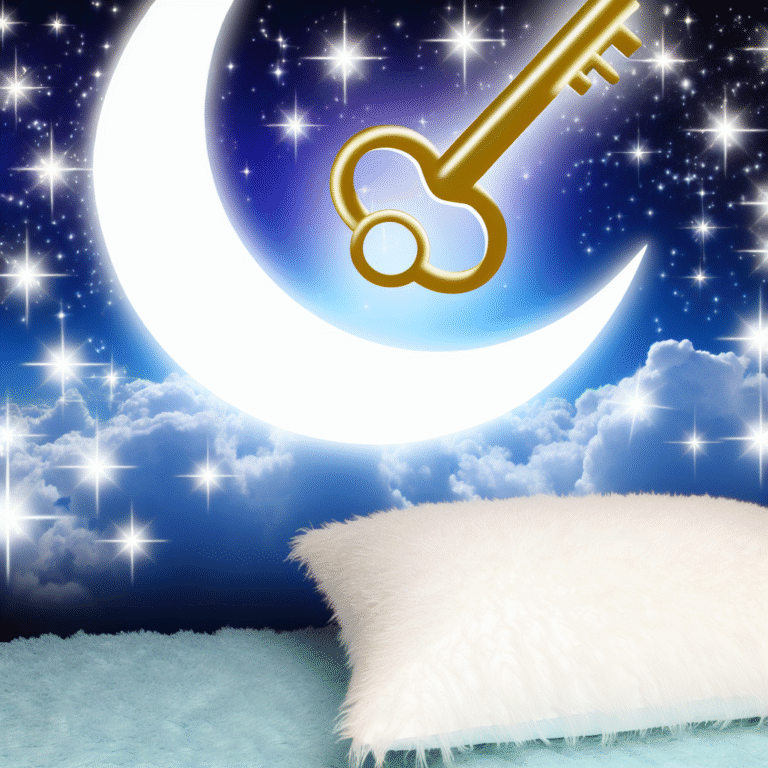
Sleep Matters: Tackling the Intersection of Sleep Deprivation and Mental Health for Ultimate Well-Being
Introduction
In our fast-paced world, the importance of sleep is often overshadowed by the hustle of daily life. Many of us wear sleep deprivation like a badge of honor—pushing through the day with just a few hours of rest, convinced that we can conquer the world without the restorative power of sleep. But what if I told you that this attitude could be devastating for our mental health? The truth is, sleep matters. It plays a pivotal role in our emotional regulation, cognitive function, and overall mental well-being.
As society grapples with increasing rates of anxiety, depression, and stress-related disorders, it is essential to explore how sleep deprivation intersects with these mental health issues. Understanding the relationship between sleep and mental health can offer invaluable insights and actionable steps toward a healthier, more balanced life.
The Science of Sleep
Why Sleep Matters
Sleep is not just a time for our bodies to rest; it is a vital process that allows our brains to recharge. During the night, our bodies undergo several critical functions, including:
- Memory Consolidation: Sleep aids in transferring short-term memories into long-term storage.
- Emotional Regulation: Sufficient sleep promotes the regulation of emotions, making us less reactive to stressors.
- Hormonal Balance: Sleep helps regulate hormones that affect mood and appetite.
According to the National Institute of Mental Health (NIMH), people with sleep disorders are more prone to develop mental health issues. Conversely, individuals with anxiety or depression often experience sleep disruptions. Thus, sleep matters deeply in the realm of emotional and psychological health.
The Stages of Sleep
Understanding sleep stages can deepen our appreciation for its intricate role in mental health. The sleep cycle comprises several stages:
NREM Sleep: This is divided into three stages, progressing from light to deep sleep. Deep sleep is crucial for physical recovery and memory.
- REM Sleep: During this stage, most dreaming occurs. REM sleep is essential for emotional processing and aligning mental health.
| Sleep Stage | Duration | Importance |
|---|---|---|
| NREM Stage 1 | 5-10 mins | Light sleep; transition phase |
| NREM Stage 2 | 20 mins | Body temperature drops; heart rate slows |
| NREM Stage 3 | 30 mins | Deep sleep; physical recovery and growth |
| REM | 20-25 mins | Associative memories and emotional processing |
Sleep Deprivation: A Modern Epidemic
Understanding Sleep Deprivation
Sleep deprivation is defined as receiving less sleep than the body needs for optimal functioning. The recommended amount of sleep varies by age, but adults generally require about 7-9 hours per night. Alarmingly, the Centers for Disease Control and Prevention (CDC) reports that one in three adults do not get enough sleep.
The Psychological Impact of Sleep Deprivation
The psychological effects of chronic sleep deprivation are profound:
- Increased Anxiety: Lack of sleep amplifies the brain’s response to stress, leading to heightened anxiety levels.
- Depression: A meta-analysis published in the Journal of Clinical Psychiatry found that sleep problems are a significant predictor of depression.
- Cognitive Impairment: Sleep deprivation can impede decision-making, creativity, and problem-solving abilities.
Case Study: The Effects of Sleep Deprivation on College Students
A study conducted at the University of California revealed that sleep-deprived students exhibited increased symptoms of depression, anxiety, and stress. Students who reported getting less than six hours of sleep were 4.5 times more likely to experience clinical levels of depression compared to their well-rested peers.
Analysis
This case study reinforces the idea that sleep matters, particularly in high-stress environments like college. Students juggling academics, social lives, and part-time jobs may prioritize productivity over rest, ultimately compromising their mental health.
Sleep and Mental Health: A Bidirectional Relationship
The Vicious Cycle
The connection between sleep and mental health is bidirectional; while poor sleep can lead to mental health issues, existing mental health conditions can also worsen sleep quality. For example:
Depression and Sleep: Individuals suffering from depression often experience insomnia or hypersomnia. Irregular sleep patterns exacerbate feelings of sadness, leading to a vicious cycle that is challenging to break.
- Anxiety and Sleep: People dealing with anxiety often find it difficult to fall or stay asleep. This sleeplessness can heighten anxiety symptoms, creating a feedback loop.
The Role of Sleep Disorders
Common sleep disorders, such as insomnia, sleep apnea, and restless leg syndrome, can significantly impact mental health. Research shows that individuals with insomnia are more likely to develop anxiety and depression over time.
| Sleep Disorder | Symptoms | Links to Mental Health |
|---|---|---|
| Insomnia | Difficulty falling/staying asleep | High risk of anxiety and depression |
| Sleep Apnea | Pauses in breathing during sleep | Increases risk of depression and impaired cognition |
| Restless Leg Syndrome | Urge to move legs, discomfort | Associated with mood disturbances |
Strategies for Better Sleep and Mental Health
Prioritize Sleep Hygiene
Creating a conducive environment for sleep is critical. Here are some actionable tips:
- Maintain a Sleep Schedule: Go to bed and wake up at the same time daily.
- Create a Relaxing Bedroom Environment: A dark, cool, and quiet room enhances sleep quality.
- Limit Screen Time Before Bed: Reducing blue light exposure can improve melatonin production, promoting better sleep.
Mindfulness and Sleep
Mindfulness practices, such as meditation and deep breathing, can enhance sleep quality. Studies show that mindfulness-based interventions improve sleep quality and decrease symptoms of anxiety and depression.
Physical Activity
Regular exercise not only boosts physical health but also enhances sleep quality. Aim for at least 30 minutes of moderate exercise most days, but avoid vigorous exercise close to bedtime.
Seek Professional Help
If sleep deprivation and mental health issues persist, it’s crucial to consult healthcare professionals. Therapy options, such as Cognitive Behavioral Therapy for Insomnia (CBT-I), can be beneficial in addressing both sleep and mental health concerns.
Conclusion
The evidence is clear: sleep matters immensely when it comes to mental health. Sleep deprivation not only hampers our ability to function effectively but also poses severe risks to emotional well-being. By embracing the power of restorative sleep, we can pave the way for healthier minds and improved overall quality of life.
As we navigate the complexities of modern living, let’s prioritize our sleep as an essential foundation for mental health. Remember, achieving optimal health begins with a good night’s sleep.
FAQs
1. How does sleep deprivation affect my brain?
Sleep deprivation impairs cognitive functions, including decision-making, problem-solving, and emotional regulation. It can also exacerbate symptoms of anxiety and depression.
2. What are the recommended hours of sleep for adults?
Most adults require 7-9 hours of sleep per night to function optimally.
3. Can improving my sleep help with anxiety?
Yes, improving sleep hygiene can reduce anxiety levels and promote better emotional regulation.
4. What are some natural remedies for sleep issues?
Natural remedies such as herbal teas (like chamomile), magnesium supplements, and essential oil diffusers can aid in improving sleep quality.
5. When should I seek help for my sleep problems?
If you frequently struggle with sleep or notice persistent effects on your mental health, it’s crucial to consult a healthcare professional for guidance.
By integrating sleep into our daily health routines, we nurture not just our bodies but also our minds. Remember, sleep matters—so let’s tackle the intersection of sleep deprivation and mental health for a brighter, healthier future.

















